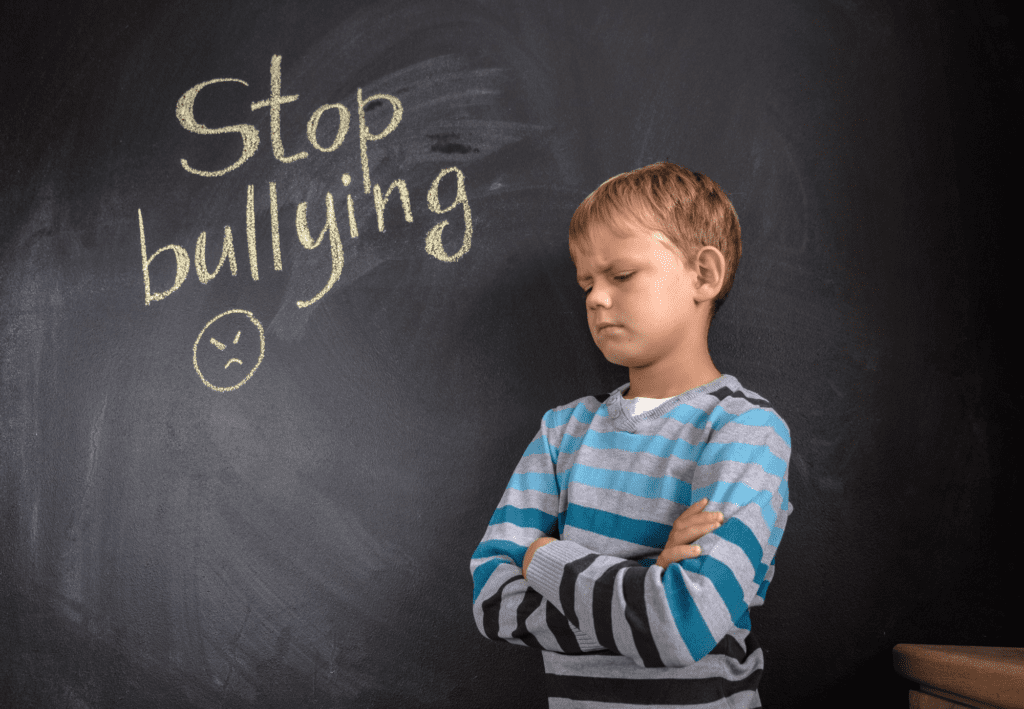How To Help Your Bullied Child
The effects of bullying can be very detrimental, not only to a child’s academic experience but also to social development overall. Whether these tormentors are using physical attacks, verbal harassment, or cyberbullying to persecute their victims, the psychological and emotional impacts could become long-lasting.
While it simply isn’t possible to protect your kids from every negative social encounter, there are ways to prepare for potential bullying and appropriately respond when it happens. Below is a brief look at the warning signs and possible effects of bullying, as well as ways to help your bullied child.

Warning Signs Your Child Is Being Bullied
One of the first things parents should do is learn how to recognize potential indications of being bullied. Every child experiences bullying differently. That being said, there are typical signs and symptoms parents should be familiar with for kids of all ages. A common one is withdrawal from or avoidance of things previously loved. For instance, kids may suddenly want to inexplicably pull out of an activity they were excited about earlier. Along the same lines is no longer wanting to go to school or ride the school bus.
Other indicators may be new physical complaints. From tummy aches to headaches, these symptoms may develop due to fear and stress. There may also be unexplained bruises, scratches, torn clothing, and “lost” belongings if the bullying has escalated to physical assaults. Lastly, bullying could also lead to emotional symptoms and behavioral changes. These might include sleeplessness, mood swings, lack of appetite, anxiety, and depression.
Of course, there could be other explanations for why children are feeling like this since these symptoms are not exclusive to bullying. That’s why establishing an open line of communication early in their scholastic career is key. Begin by discussing their day in a calm, friendly tone and emphasizing the importance of their safety and well-being. Check-in frequently throughout the week to talk about any problems, even “small” ones.
The Effects of Bullying
Just as every bullying experience is different, so too are the effects. If the victimization isn’t caught early or is particularly cruel, these could impact a child’s life, not just in the short-term but in the long-term as well.
Possible consequences of bullying include:
- Social isolation
- Low self-esteem
- Eating disorders
- Poor school performance
- Development of an anxiety disorder
- Suicidal ideation
- Chronic depression
- Difficulty maintaining relationships
- Employment struggles
What Parents Can Do to Help
After confirming your child is being mistreated, there are many ways to provide aid and stop it from continuing. Before approaching the school or any other steps, it’s vital to see to your child’s needs first. Be sure to explain that it’s okay to be upset about what’s happening. Provide ongoing emotional support and make it clear that the fault lies with the bully.
As you gently go over the experience, document exactly what has been happening, when, and how often to gather specific information and create a timeline. You should use open-ended questions and encourage your child to share how they felt. Go over anything on social media as well — such as messages, pictures, and so on — making sure to save copies.
Next, review the school’s handbook or website for the policy on bullying and relevant anti-bullying state laws. These documents may lay out the steps to report the incident as well as how to best contact staff members who can help.
When you feel prepared, reach out to the teacher, principal, or other school staff and share your child’s story. Ask how the bullying has been addressed and how the administration intends to respond in the future. Afterward, document any new incidents, monitor the school’s response, and follow up in writing if needed.
If the bullying continues or escalates, you can reach out for legal help by contacting a lawyer. Every state now has anti-bullying laws and this approach could prompt action from those higher up the chain of command.
Want to learn more about aiding your bullied child? Check out the accompanying resource from Kids Car Donations for further information.
This infographic was created by Kids Car Donations, cars for kids donation
Author bio: Kids Car Donations is a national organization that accepts vehicle donations to better the lives of children. The organization partners with a number of well-known nonprofits serving children and teens who are confronted with physical, mental, and emotional challenges to provide the care they need.






